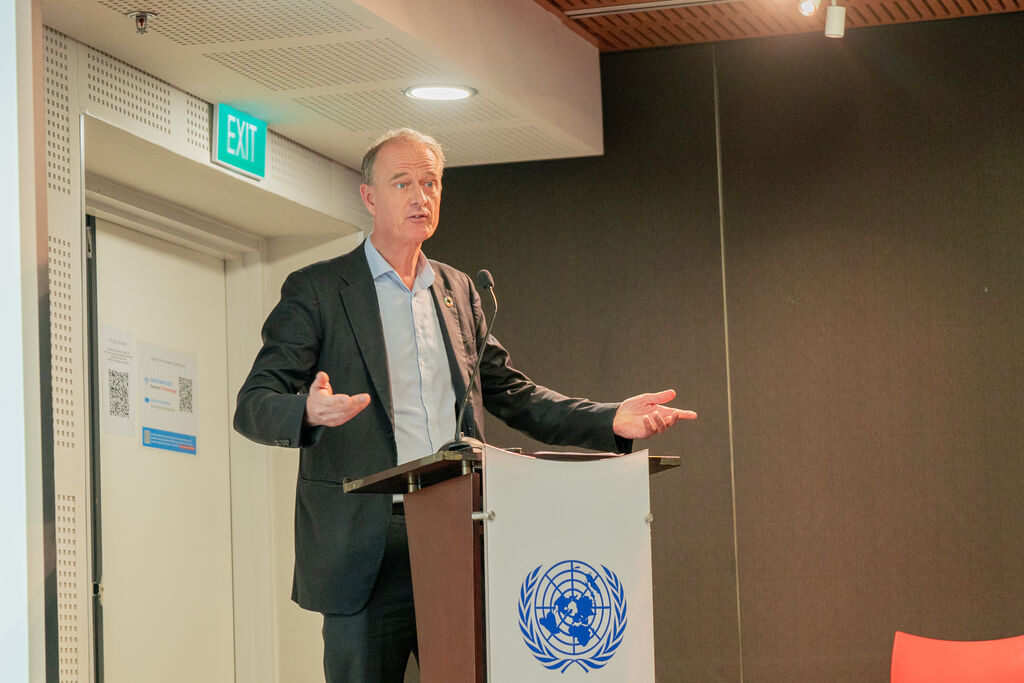 |
| Patrick Haverman, United Nations Development Programme Deputy Resident Representative in Vietnam speaks at the discussion__Photo: UNDP |
With the planned abolition of district-level governments and the reduction in the number of communes under the government restructuring plan, provincial authorities must continue disclosing land information before, during, and after the mergers, Patrick Haverman, United Nations Development Programme (UNDP) Deputy Resident Representative in Vietnam said at a thematic discussion on March 20 in Hanoi.
The thematic discussion was held to release findings of the study “2024 Review of Local Governments’ Performance in Disclosure of District Land Use Plans and Provincial Land Pricing Frameworks”, which was jointly conducted by the UNDP in Vietnam, Real-Time Analytics and the Centre for Education and Promotion and Empowerment Women (CEPEW).
These findings show that the disclosure of land information on the e-portals of provincial and district-level governments has significantly improved over four assessment rounds from 2021 to 2024.
As of October 6, 2024, 53 out of 63 provinces and municipalities (accounting for 84.13 percent) had disclosed their land pricing frameworks on their e-portals, marking a 41.23-percent increase from the 2021 assessment. Over 70 percent of the 704 district-level People’s Committees had disclosed their 2024 district-level land use plans on their e-portals, a 23-percent increase from 2021. For the 2021-30 period, 452 district-level land use master plans (DLUMPs) were available on the e-portals of 704 districts (accounting for 64.2 percent). Bac Giang is the only province where all districts have consistently disclosed DLUMPs across three assessment rounds since 2022.
The disclosure of land information is crucial for promoting transparency and accountability in land governance, said Tong Khanh Linh, Deputy Director of CEPEW.
As Vietnam transitions to a two-tier local government system, she suggested provincial and grassroots governments uphold their responsibility to disclose accurate, complete, and timely land information. Full implementation of the 2016 Law on Access to Information is necessary, with a particular focus on appointing competent personnel to manage public disclosure and respond to citizens’ requests, she added.
At the discussion, experts also stressed the need to conduct a comprehensive review and revision of related laws such as the Law on Organization of Local Administration, Land Law, Investment Law, Law on Environmental Protection, Law on Access to Information, and their guiding documents to align with new governance structures and enhance public access to land information.
Besides, it is also imperative to ensure the availability of necessary equipment and software for efficient collection, management, and retrieval of land data, and to strengthen provincial and commune-level e-portals to fill the information gap left by the absence of district-level administration.- (VLLF)









